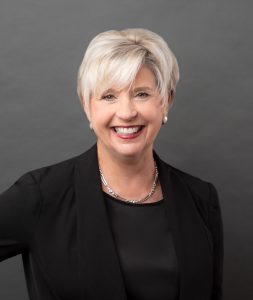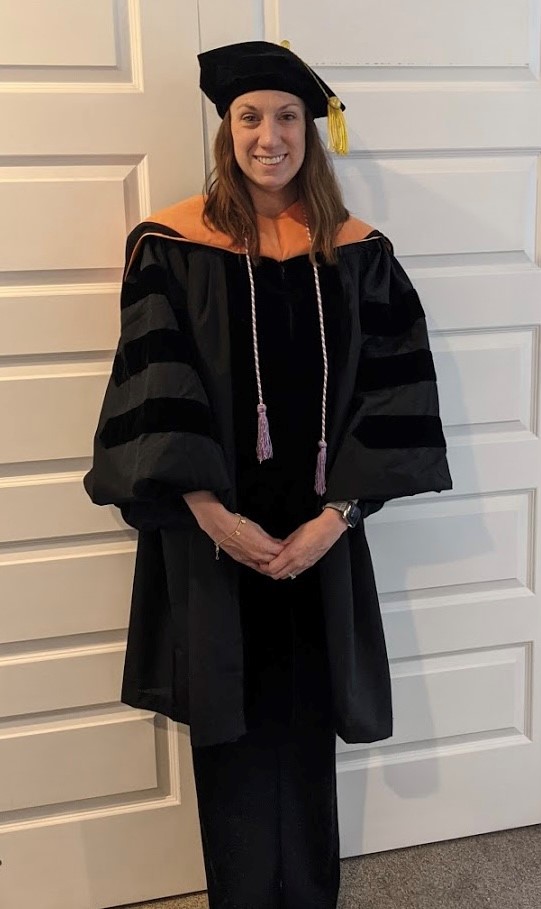March 1, 2022

Dear OADN Members,
Over the past seven-year as OADN’s CEO and during my 32-year tenure in associate degree nursing (ADN) education, I have heard many stories about the success of ADN graduates. Those individuals who persevered to reach their goal as a registered nurse continually demonstrate the importance of ADN education. For nurse educators, it is a notable reason you continue to devote your time and expertise.
I believe all of us have observed a moment in time when an occurrence makes you reflect and acknowledges your passion for the associate degree pathway. One week ago, after a particularly long Monday, I was fortunate to receive a reminder of why we must continually advocate for associate degree education. It was late in the evening, and I noticed an email that popped into my inbox. My first inclination was I can read that email tomorrow. However, something about the subject line, “A Quick Hello,” intrigued me. The three-sentence email was from a student I knew in 2008. The message read, “I came across your name recently for your work with the Commission to Address Racism in Nursing, and then later the same week a colleague shared a picture with you in it from a conference for associate degree nursing programs, and I thought to myself, twice in a week is quite a coincidence. I have had a wonderful career and now teach public health and healthcare policy at Saint Louis University. I am appreciative of the education I received at Lewis and Clark, and it prepared me well for my career.”
It was one of those moments that truly made my day! I absolutely wanted to know more and proceeded to ask Zoe to send her story.
“I sought out the nursing program at Lewis and Clark Community College (LCCC) after attending a large, four-year institution for a few semesters. I realized the university was not the right fit for me- full of distractions, little support, and expensive- and after meeting with the Program Director Sheri Banovic, I knew it would be the right program for me. The smaller class sizes allowed for a more focused learning environment, as well as the ability for students to interact with the faculty. The program design allowed for a natural progression through nursing concepts, without the distractions of simultaneous non-nursing classes. I felt prepared within the clinical environment thanks to the high quality of the content delivered in the classroom setting. I also remember each member of the faculty, and how helpful and passionate they were about their work, especially my clinical faculty member who (rightly so) thought I should do a preceptorship in the emergency department. This had been her area of bedside expertise and she thought I would do well in this area. I was so appreciative of this opportunity, and I knew this is an area I wanted to pursue in my career.
College (LCCC) after attending a large, four-year institution for a few semesters. I realized the university was not the right fit for me- full of distractions, little support, and expensive- and after meeting with the Program Director Sheri Banovic, I knew it would be the right program for me. The smaller class sizes allowed for a more focused learning environment, as well as the ability for students to interact with the faculty. The program design allowed for a natural progression through nursing concepts, without the distractions of simultaneous non-nursing classes. I felt prepared within the clinical environment thanks to the high quality of the content delivered in the classroom setting. I also remember each member of the faculty, and how helpful and passionate they were about their work, especially my clinical faculty member who (rightly so) thought I should do a preceptorship in the emergency department. This had been her area of bedside expertise and she thought I would do well in this area. I was so appreciative of this opportunity, and I knew this is an area I wanted to pursue in my career.
After graduating from the program in 2008, I took the NCLEX and passed with ease, and was able to join the nursing workforce. My preceptor in my first role as a nurse commented on an almost daily basis how well- prepared, I was, mentioning most new graduate nurses did not come prepared with the ability to critically think, nor did they have clinical experiences that adequately prepared them to show up ready to work in the acute care setting. It was not long before I was precepting new graduate nurses and student nurses and realized what she had meant- I could see for myself that students from other programs, including baccalaureate nursing schools, were not receiving the top-notch nursing education I had received.
In 2010 I enrolled in an online RN to BSN program and graduated in 2011. Completing the coursework while working full time was a doable task, and I was extremely satisfied I had gone this route to earn my BSN.
I continued working in the emergency department, and in 2015 I felt called back to academics. I applied to a BSN to DNP program, with a letter of recommendation from a faculty member at LCCC and started the program in 2016. In 2019, I earned UMSL’s Innovations in Clinical Practice Award and successfully defended my thesis and earned my Doctor of Nursing Practice with a focus on population health. I am now teaching public health and healthcare policy for a baccalaureate nursing program. Every day of my nursing career I am thankful for the wonderful education I received in my ADN program. I was well prepared to join the nursing workforce, and I would not alter my career or academic path in any way.
Thank you for allowing me the opportunity to talk about my career path! I honestly am so happy with the experience I had at LCCC and am a proponent for associate degree programs, as they promote equity in education and our workforce.”
These are the authentic stories of ADN students that must be shared to demonstrate the significant value of ADN education to the nursing profession. Many of these stories speak to academic progression and validate the essential role of the ADN entry point. Do you have a story to share? I would welcome my inbox being filled!
With respect and gratitude for all you do.

Donna Meyer, MSN, RN, ANEF, FAADN, FAAN
Chief Executive Officer, OADN